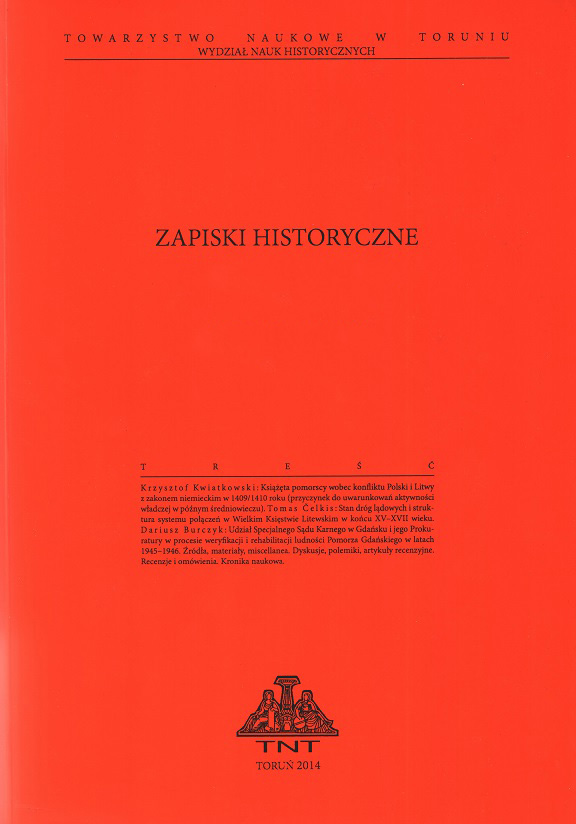Qui bona fide a non domino emit
Qui bona fide a non domino emit
Justinian’s Digest as the Legal Reference Point in the Conflict between the Urban Municipality and its Ruler in Prussia in the Late Middle Ages
Author(s): Krzysztof KwiatkowskiSubject(s): Cultural history, History of Law, Political history, Middle Ages
Published by: Towarzystwo Naukowe w Toruniu
Keywords: Late Middle Ages;Prussia;the Teutonic Order;Elbląg;towns;Roman law;conflicts;
Summary/Abstract: The article addresses the conflict generated in the last decade of the 13th century between the Prussian branch of the Teutonic Order and the city of Elbląg. The analysis of the preserved sources allowed us to show the dynamics of the conflict, in which the authorities of Elbląg appealed not only to Canon law, but also to the norms of Roman civil law included in the Digesta (Pandects) of Justinian, which was rarely applied in Prussian circumstances. On 16 August 1300 in Paris, the authorities of Elbląg obtained a legal interpretation concerning several controversial matters issued by two well-known lawyers – the advisor to King Philip IV of France, Pierre de Belleperche and Hugo de Besancon. The ruling was based on the interpretation of the sentence by Ulpian Domitius (Digesta 32,2,13). One of the problems addressed in the interpretation was the range of the military duties falling to Elbląg’s burghers regarding the Teutonic Order. The authorities of Elbląg endeavoured to find a legal explanation to support their negative attitude towards the Teutonic Order’s new practice of conscripting new military contingents from the city of Elblag to take part in military activities undertaken by the Teutonic Order in the remote eastern borderlands of the Prussian state. The legal opinion issued by both lawyers from Paris was favourable for the inhabitants of Elbląg, as it was stipulated that any decision about conscription was the jurisdiction of the mayor (Vogt) elected by the city council. It is difficult to establish what the actual role of the opinion issued by the Paris lawyers was in the conflict between Elbląg and the Teutonic Order, but the mere fact that Elblag’s burghers’ asked these lawyers in Paris for help indicates that the inhabitants of Elbląg at the end of the 13th century were not only affluent merchants, but also people with an ambition to exercise power. Such ambitions were supported by the authorities of the city, characterised by wide intellectual and cultural horizons. The actions undertaken by the inhabitants of Elbląg addressed in the article remain one of the very few examples of recourse to the ancient system of Roman law in a conflict concerning a particular local law (in this case the law of the city of Lübeck).
Journal: Zapiski Historyczne
- Issue Year: 82/2017
- Issue No: 3
- Page Range: 7-31
- Page Count: 33
- Language: Polish

